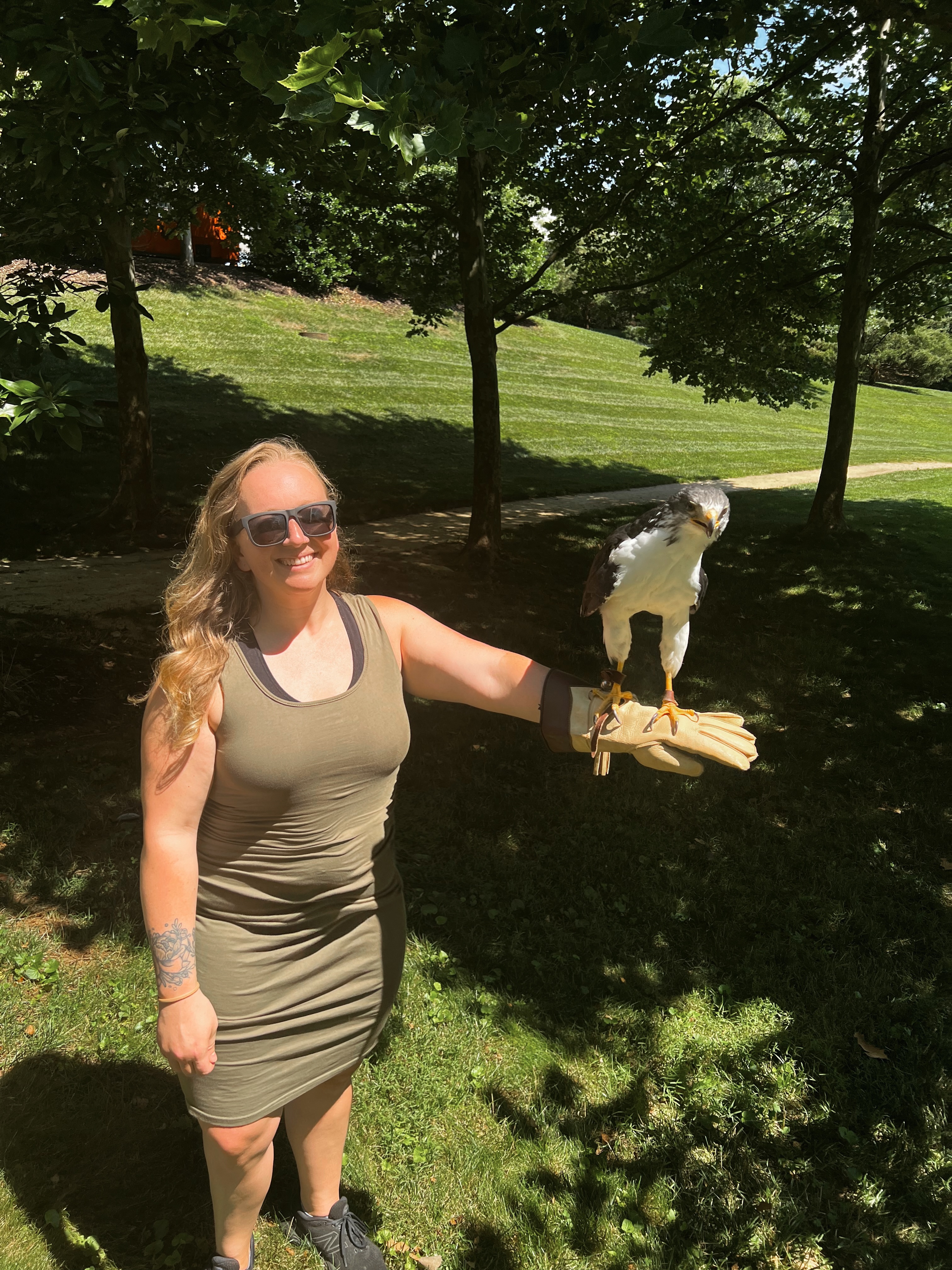Annet Kirabo, DVM, MSc, PhD, is an Associate Professor of Medicine in the Division of Clinical Pharmacology within the Department of Medicine at Vanderbilt University Medical Center. Dr. Kirabo is interested in understanding the role of inflammation in hypertension. She obtained her PhD from the Department of Physiology and Functional Genomics at the University of Florida College of Medicine. During her PhD training, she was awarded an American Heart Association (AHA) predoctoral fellowship to determine the specific involvement of vascular smooth muscle cell expression of Jak2 in the pathogenesis of cardiovascular disease.
Ashley L. Pitzer, PhD, is a Research Instructor in the Division of Clinical Pharmacology within the Department of Medicine at Vanderbilt University Medical Center. She is interested in the molecular mechanisms and genes responsible for cardiac hypertrophy, fibrosis, and hypertension. As a PhD candidate in the Department of Pharmacology and Toxicology at the Virginia Commonwealth School of Medicine, her doctoral dissertation was a molecular study of the mechanism of RIG-I inflammasome in vascular endothelial cell dysfunction.
An interview with
our scientists:
Learn more about
their research:
Whose lab are you in, and what made you choose their lab?
Ashley Pitzer - I'm in Annet Kirabo's lab. During our first interaction, I was immediately drawn to her enthusiasm. Additionally, she was excited about my graduate experience with the inflammasome and how it was involved in salt-sensitive hypertension. Her ability to constantly come up with new and innovative ideas was a huge draw.
When you were five-years-old, what did you want to be when you grew up?
AK - A doctor - I was born and raised in rural Uganda. We had no access to medical care.
AP - I grew up in a musical household. My father is a music minister and my mother is a music teacher. I wanted to be a musician when I grew up because that was (and still is) a huge passion of mine.
What was it about science that drew you to it?
AK - I missed the mark to get into medical school, I ended up in Vet school - my mentor at that time introduced to me the idea of research to discover therapeutics for human disease
AP - I've always been drawn to puzzles and patterns. Science is a constant puzzle and full of patterns needing solving.
In a nutshell, what do you study?
AK - Salt-Sensitive Hypertension
AP - ENaC in Salt-Sensitive Hypertension
Why is your research important? What is its larger impact, and/or how do you foresee it impacting public health?
AK - Salt sensitive hypertension is a major risk factor for cardiovascular morbidity & mortality. We study the pathophysiology of salt sensitive hypertension, focusing on the immunology of salt-sensitive microbiota and their interaction with the host.
AP - Salt-sensitivity occurs in both people with high blood pressure and normal blood pressure. It's a huge predictor for adverse cardiovascular events and mortality. There's a major lack in practical diagnostic testing. Digging into the mechanism may help find a diagnostic tool to identify salt-sensitivity and treat people before irreversible adverse outcomes occur.
What has been your biggest challenge as a scientist?
AK - Rejection.
AP - Maintaining a work/life balance.
What is one topic in your field that you are excited about right now?
AK - The role of sodium transporters known as ENaC expressed in antigen presenting cells and how they contribute to oxidative lipid modifications leading to inflammation and high blood pressure.
What is one piece of advice you'd give to a new graduate student?
AK - Persistence is key - do not give up on yourself!



